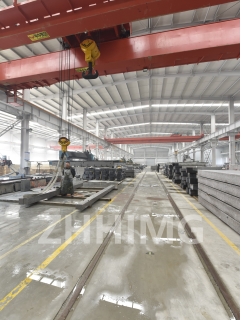Granite Components for Precise Measurements: The Cornerstone of Accuracy
In the realm of precision engineering and metrology, the importance of accuracy cannot be overstated. One of the unsung heroes in this field is granite, a material renowned for its stability and durability. Granite components for precise measurements have become indispensable in various industries, from manufacturing to scientific research, due to their exceptional properties.
Why Granite?
Granite is a natural stone that boasts several characteristics making it ideal for precision measurement applications. Its high density and low porosity contribute to its stability, ensuring minimal deformation under load. Additionally, granite's thermal stability means it is less susceptible to temperature fluctuations, which can cause expansion or contraction in other materials, leading to measurement errors.
Applications of Granite Components
1. Surface Plates: Granite surface plates are the foundation of precision measurement. They provide a flat and stable reference plane for inspecting and measuring parts. The inherent rigidity and wear resistance of granite ensure that these plates maintain their flatness over time, even with frequent use.
2. Machine Bases: In high-precision machinery, granite bases are preferred over metal due to their vibration-damping properties. This reduces the risk of measurement errors caused by machine vibrations, leading to more accurate and reliable results.
3. Coordinate Measuring Machines (CMMs): Granite is often used in the construction of CMMs, which are essential for quality control in manufacturing. The stability and precision of granite ensure that these machines can measure complex geometries with high accuracy.
4. Optical Equipment: In the field of optics, granite components are used to create stable platforms for sensitive instruments. This is crucial for maintaining the alignment and accuracy of optical systems.
Advantages Over Other Materials
Compared to other materials like steel or aluminum, granite offers superior wear resistance and does not rust or corrode. Its non-magnetic properties also make it suitable for environments where magnetic interference could be an issue. Furthermore, granite's natural beauty and finish add an aesthetic appeal to precision instruments.
Conclusion
Granite components for precise measurements are a testament to the material's unmatched qualities. Their use in various high-precision applications underscores the importance of stability, durability, and accuracy in achieving reliable measurement results. As industries continue to demand higher precision, the role of granite in metrology and engineering is set to remain pivotal.
Post time: Sep-14-2024

